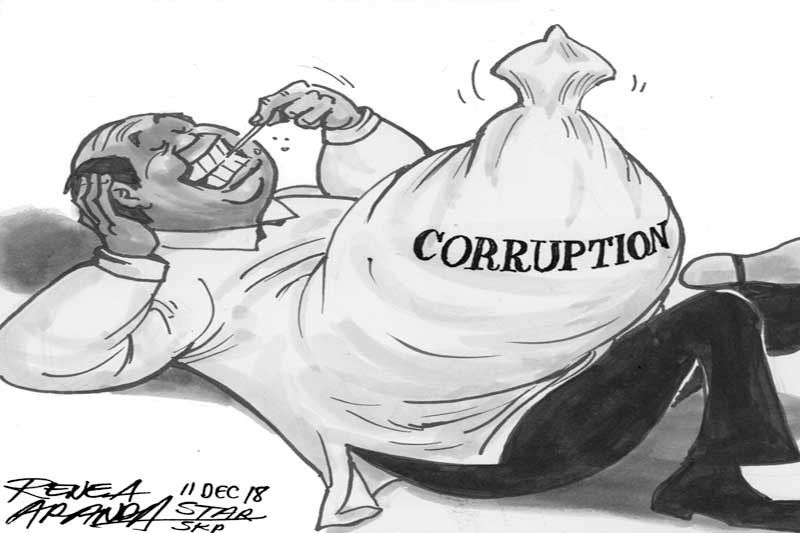EDITORIAL - Battling corruption

About two decades ago, multilateral institutions providing development assistance around the world began taking a closer look at the impact of corruption on projects funded by their aid programs.
The studies determined that corruption retarded poverty alleviation efforts and the pace of development. On Dec. 9, 2003, the United Nations approved the Convention Against Corruption – one of several international agreements that are legally binding on the state parties. The convention now has 186 signatory states, with the Philippines joining in 2006.
The Philippines has tough laws against various forms of corruption. Apart from the Anti-Graft and Corrupt Practices Act, there is also a Code of Conduct and Ethical Standards for Public Officials and Employees, which prohibits acts such as receiving expensive gifts from persons dealing with government agencies.
A key problem, as in most laws in this country, is enforcement. That code of conduct, whose prohibited acts can earn violators five years in prison and a fine, is broken in many ways and varying degrees every day. Opportunities for accepting grease money are built into systems and procedures. This is one of the major disincentives to job-generating investments.
Another problem is the weakness of political will. It took years and threats of an international financial blacklist before lawmakers approved the inclusion of corruption among the predicate crimes covered by the Anti-Money Laundering Act. Even when the AMLA is applied by the AML Council, however, crooked public officials can still find kindred spirits in the judiciary.
In too many cases, justice is sold to the highest bidder, rendering the toughest laws toothless. And the Office of the Ombudsman cannot even freely investigate members of the judiciary for graft. The Supreme Court has ordered the ombudsman to wait for the conclusion of the SC’s own administrative probe of magistrates accused of wrongdoing before initiating a criminal probe. A judge or justice accused of corruption could be dead before the Office of the Ombudsman gets its hands on him.
Little wonder then that impunity in corruption reigns. Those who use public office for personal gain are not only spared from punishment, but are also free to hold public office again. International Anti-Corruption Day was marked last Sunday with the Philippines already having all the legal weapons to fight the scourge. What is needed is full enforcement.
- Latest
- Trending




























